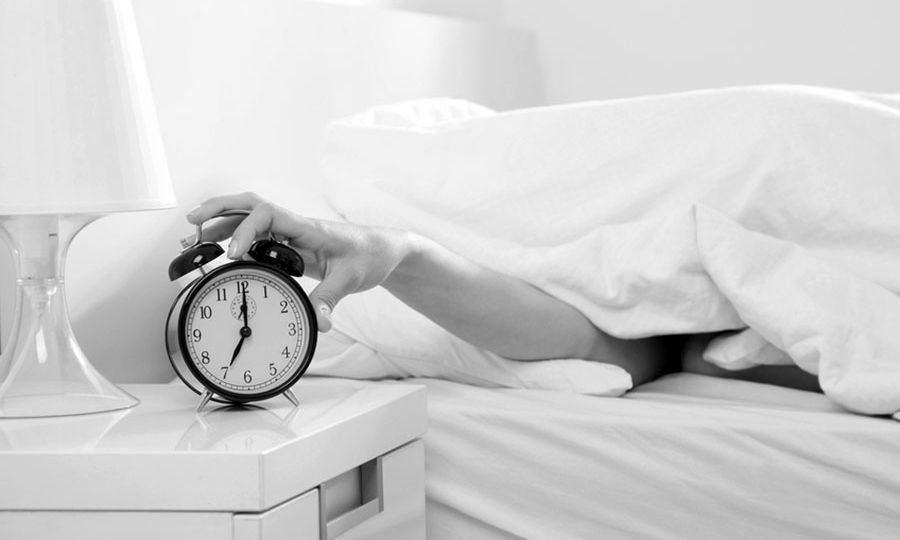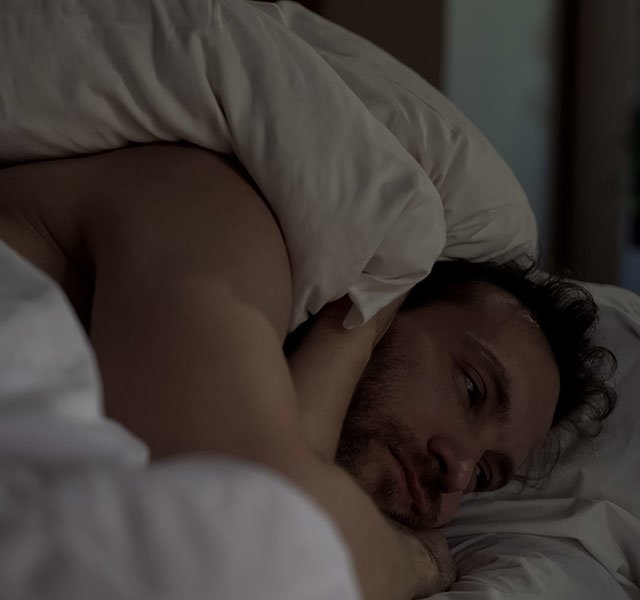10 Tips For Bad Night’s Sleep: Say Goodbye
A bad night’s sleep can leave you feeling exhausted and irritable. It affects your productivity and mood throughout the day.
Experiencing a poor night’s sleep is a common issue that impacts millions worldwide. This disruption can stem from various factors, including stress, an uncomfortable sleep environment, or underlying health conditions. Ensuring quality sleep is crucial for both mental and physical health.
Achieving restful sleep requires understanding the underlying causes of sleep disturbances and addressing them effectively. Strategies like establishing a regular sleep schedule, creating a comfortable sleep environment, and avoiding stimulants before bedtime can significantly improve sleep quality. By focusing on these areas, individuals can enhance their overall well-being and tackle the challenges of a bad night’s sleep head-on.
Causes Of Poor Sleep
A bad night’s sleep can ruin your whole day. Your mind and body feel tired. You might ask, “Why can’t I sleep well?” Many things can cause poor sleep. Today, we will talk about three big reasons. Let’s explore them together.
Stress And Anxiety
Feeling stressed or worried can make sleeping hard. Your brain stays awake, thinking about many things. Here are some key points:
- Worrying a lot keeps your mind active at night.
- Scary dreams can happen when you are very stressed.
- Relaxing before bed helps your brain calm down.
Let’s see how stress affects your sleep with an example:
| Stress Level | Sleep Quality |
|---|---|
| Low | Good |
| High | Poor |
Diet And Nutrition
What you eat also changes how you sleep. Some foods make sleeping tough. Let’s look at a few important tips:
- Eating late can make your stomach work all night.
- Sugar and caffeine can keep you awake.
- Warm milk might help you feel sleepy.
Here’s a list of foods and their effects on sleep:
| Food | Effect on Sleep |
|---|---|
| Chocolate | Can disturb sleep |
| Bananas | Can promote sleep |
Technology Influence
Phones and computers can also hurt your sleep. The light from screens is not good before bed. Here’s why:
- Blue light from screens tells your brain to stay awake.
- Playing games or watching videos can be too exciting at night.
- Reading a book instead of using your phone can help.
Let’s compare activities before bedtime:
| Activity | Effect on Sleep |
|---|---|
| Using a phone | Can delay sleep |
| Reading a book | Can improve sleep |
Symptoms To Watch For
A bad night’s sleep can lead to many problems the next day. Your body and mind may not work well. You might feel very tired and not like yourself. It is important to know what signs to look for. This helps you understand if your sleep was not good.
Fatigue And Drowsiness
Not sleeping well can make you feel very tired. You may want to sleep during the day. This is because your body did not rest enough at night. Let’s look at some signs that you are very tired:
- Heavy eyelids: Your eyes may feel hard to keep open.
- Yawning a lot: You may yawn more than usual.
- Slow thinking: It might be hard to think fast.
- No energy: You may not feel like running or playing.
These signs tell you that your body needs more sleep. Going to bed early the next night can help.
Mood Changes
Sleep helps keep your mood good. When you don’t sleep well, you might feel:
- Grumpy: Little things might make you upset.
- Sad: You could feel like crying more.
- Angry: Things might bother you more than they should.
These feelings usually get better after a good sleep. Talking to someone about how you feel can also help.
Cognitive Impairment
Our brains need sleep to think clearly. When we don’t sleep enough, we may have trouble:
- Remembering things: It can be hard to remember what you learned.
- Focusing: Paying attention can be hard.
- Making decisions: Choosing what to do can feel very hard.
These problems often go away after sleeping well. If you have trouble sleeping often, talking to a doctor can help.
Impact On Health
A bad night’s sleep can hurt your health in many ways. It’s not just feeling tired. Your body and mind can suffer too. This post talks about how bad sleep affects you.
Physical Health Risks
Poor sleep can lead to many health problems. Here are some:
- Heart disease: Your heart can get sick.
- Diabetes: Too much sugar in your blood can happen.
- Obesity: You might gain a lot of weight.
Sleeping bad can make you catch colds often. Your body fights germs poorly.
Mental Health Effects
Feeling sad or worried happens more with bad sleep. Even getting angry is easier. Your brain needs sleep to help you feel happy and calm. Without enough sleep, everything feels harder.
Remembering things becomes tough. Learning new stuff at school might seem very hard.
Long-term Consequences
Not sleeping well for a long time is really bad. Here are some reasons:
| Problem | What it means |
|---|---|
| Memory Issues | You might forget things a lot. |
| Shorter Life | Your life might be shorter than others. |
It also makes it hard to stay friends. Being grumpy or sad can push people away.

Credit: www.nytimes.com
Sleep Hygiene Tips
A bad night’s sleep can make your whole day tough. Good sleep is like fuel for your brain. Sleep hygiene tips help make sure you sleep well every night. Let’s look at how to sleep better with some easy steps.
Creating A Sleep Schedule
Sticking to a sleep schedule makes your body’s clock happy. This means going to bed and waking up at the same times, even on weekends. Your body loves routines. Here’s how to make a good sleep schedule:
- Pick a wake-up time that works every day.
- Decide on a bedtime that lets you get 8 hours of sleep.
- Stay away from long naps in the day so you’re tired at bedtime.
- Set a reminder to start getting ready for bed each night.
It can be hard at first, but your body will thank you for being regular with your sleep.
Comfortable Sleep Environment
Where you sleep is key to good rest. A comfortable sleep environment is quiet, dark, and cool. See how to make your room perfect for sleeping:
| Item | Why It’s Important | What to Do |
|---|---|---|
| Mattress and Pillows | Support your body well. | Choose ones that feel good to you. |
| Light | Too much keeps you awake. | Use dark curtains or a sleep mask. |
| Noise | Loud sounds disturb sleep. | Earplugs or a white noise machine can help. |
| Temperature | Too hot or cold is bad for sleep. | Keep your room cool, around 65°F (18°C). |
Small changes can make a big difference in how well you sleep.
Relaxation Tips for Sound Sleep
Relaxing before bed helps your mind calm down. Try these relaxation tips for sound sleep:
- Deep breathing: Slow, deep breaths can help your body relax.
- Reading a book: A calm story can make your eyes and brain ready for sleep.
- Gentle stretching: This helps your muscles unwind and get loose.
- Guided imagery: Picture a calm place and let your thoughts go there.
Do these things as part of your bedtime routine for better sleep. To get more details you can read this article.
Natural Remedies
A rough night can leave you tired and groggy. Natural remedies may help you find rest. They are gentle and can soothe your mind. Let’s explore how herbal supplements, aromatherapy, and mindfulness can improve your sleep.
Herbal Supplements
Many plants are friends to sleep. They calm your mind and get your body ready for bed. Here are a few you might find helpful:
- Valerian Root – This plant can make you feel sleepy and lower the time it takes to fall asleep.
- Chamomile – A gentle herb, often in teas, that can relax your muscles and mind.
- Lavender – Not just for smelling, this herb can also be eaten and may reduce anxiety.
Remember, talk to a doctor before trying new supplements. They can help you understand what is safe.
Aromatherapy
Aromatherapy uses smells to relax your body and mind. Essential oils are a big part of this. Here are some popular ones:
- Lavender Oil – A classic scent that can calm nerves and lead to better sleep.
- Bergamot Oil – Citrusy and fresh, it can lower stress and prepare you for sleep.
- Sandalwood Oil – Earthy and warm, it may help you to feel more peaceful.
Use these oils in a diffuser or mix them with a carrier oil for your skin. Make sure they are safe for you.
Mindfulness Practices
Mindfulness is about living in the moment. It can quiet your thoughts and help you sleep. Try these simple practices:
- Deep Breathing – Slow, deep breaths can relax your body and mind.
- Body Scan – Focus on each part of your body. This can release tension.
- Meditation – Sitting quietly with your thoughts can calm your mind before bed.
Start with just a few minutes each night. You may find it easier to drift off to sleep.

Credit: davisphinneyfoundation.org
When To Seek Help
A bad night’s sleep can make the next day feel impossible. Sometimes, it’s just one night. Other times, it might be a sign of something more serious. Knowing when to ask for help is crucial. This guide talks about sleep issues and how to tackle them.
Identifying Sleep Disorders
Many people think a bad sleep night is normal. But, it might be a sleep disorder. Here are signs to watch for:
- Snoring loudly can mean your airway is partly blocked while sleeping.
- Feeling tired after a full night’s sleep is not okay.
- Waking up often in the night can mean your sleep is disturbed.
- Hard to breathe or feeling a choking sensation might be sleep apnea.
Keep a sleep diary. Write down how you sleep each night. Note how you feel in the morning. This diary helps doctors understand your sleep.
Consulting A Professional
Seeing a doctor is a big step towards better sleep. Here’s when to see one:
- Your sleep doesn’t improve even after trying new bedtime routines.
- Daytime tiredness makes daily tasks hard.
- Mood changes or feeling down because of sleep issues.
- Feedback from others about your loud snoring or breathing pauses.
A doctor can guide you to the right specialist. They might send you for more tests.
Sleep Studies And Tests
Sometimes, a doctor will suggest a sleep study. Here’s what happens:
| Test Type | What It Does |
|---|---|
| Polysomnography | Records your sleep stages, movements, and breathing. |
| Home Sleep Tests | Checks your breathing and oxygen levels at home. |
| Multiple Sleep Latency Test | Measures how fast you fall asleep during the day. |
These tests help doctors find the best way to help you sleep better.
Coping Strategies
A bad night’s sleep can leave you feeling tired the next day. It might make it hard to focus or be in a good mood. But don’t worry, there are ways to feel better. You can take short naps, watch how much caffeine you drink, and move your body. These tips can help you get through the day until you can get a good night’s sleep again.
Short Naps
Not sleeping well at night can make you very tired the next day. One way to help is to take short naps. A short nap should last about 20 minutes. This can make you feel more awake without making it hard to sleep at night. Here are some tips for good short naps:
- Keep naps short: 10 to 20 minutes is best.
- Choose the right time: Early afternoon naps work well.
- Find a quiet place: Make sure it’s dark and peaceful.
- Set an alarm: This will stop you from sleeping too long.
Caffeine Management
Caffeine is in drinks like coffee and soda. It can make you feel awake. But if you drink too much, it can make it hard to sleep at night. Here are some tips to manage caffeine:
- Drink less caffeine: Try to have less coffee, tea, or soda.
- Know when to stop: Don’t drink caffeine after 2 PM.
- Choose other drinks: Water or herbal tea are good choices.
- Read labels: Some foods and drinks have hidden caffeine.
Exercise And Activity
Moving your body can help you feel less tired. It can also help you sleep better at night. Try to do some light exercise like walking or stretching. This can give you energy and help your body get ready for sleep. Here are some easy exercises:
- Take a walk: Even a short walk can help wake you up.
- Stretch: Stretching can help your body and mind relax.
- Dance: Put on some music and dance around for a bit.
- Do yoga: Yoga can calm your mind and make your body strong. You can read this article to know more detail how yoga can can help to have better sleep.

Building Better Sleep Habits
A bad night’s sleep can make your whole day tough. Good sleep habits are important for rest. They help you feel your best. Let’s learn how to sleep well every night.
Consistency Is Key
Going to bed at the same time each night is like magic for your brain. Your body loves routines. Set a sleep schedule and stick to it, even on weekends. This helps your body know when it’s time to sleep. Here are some tips:
- Choose a bedtime when you usually feel tired.
- Wake up at the same time every day. Yes, even on Sundays!
- Give yourself 30 minutes of wiggle room. Sometimes you can’t sleep right on time.
Limit Stimulants
What you eat and drink can affect your sleep. Caffeine and sugar can keep you awake. They are in coffee, tea, soda, and chocolate. Try not to have these things before bed. Here’s a simple table to help:
| Drink/Food | Time to Avoid Before Bed |
|---|---|
| Coffee | 6 hours |
| Soda | 6 hours |
| Chocolate | 4 hours |
Remember, water is best before bedtime. It keeps you hydrated without keeping you up.
Wind Down Routine
Relaxing before bed is like telling your body, “It’s time to sleep.” Create a calm bedtime ritual. This can be reading a book or listening to soft music. Try these ideas:
- Dim the lights to make your brain sleepy.
- Read a fun story or a chapter of a book.
- Listen to calm songs or sounds from nature.
Keep screens off. TVs, phones, and computers make it hard to sleep. They trick your brain into thinking it’s still daytime.
Frequently Asked Questions
Why Is A Good Night’s Sleep Important?
A good night’s sleep is crucial for health and well-being. It helps in memory consolidation, mood regulation, and physical restoration. Inadequate sleep can lead to impaired cognitive function and increased risk of chronic diseases.
How Can I Improve My Sleep Quality?
To enhance sleep quality, establish a regular sleep schedule. Create a relaxing bedtime routine. Keep your bedroom dark, cool, and quiet. Avoid screens before bedtime and limit caffeine and alcohol intake. Exercise regularly, but not too close to bedtime.
What Are The Effects Of A Bad Night’s Sleep?
A bad night’s sleep can result in fatigue, mood swings, and difficulty concentrating. It can lower productivity and increase the risk of accidents. Chronic poor sleep may lead to health issues like obesity, diabetes, and cardiovascular disease.
Can Stress Cause Sleep Disturbances?
Yes, stress is a common cause of sleep disturbances. It can lead to insomnia, restless sleep, or frequent awakenings. Managing stress through relaxation techniques or counseling can improve sleep quality.
Conclusion
Restful slumber is the cornerstone of vibrant health and sharp cognition. Prioritize your sleep hygiene; your body and mind will thank you. Tackle the issues disrupting your rest head-on, and embrace the changes needed for tranquil nights. Sweet dreams await with each step towards better sleep habits.
Remember, every good day starts with a good night’s sleep.



